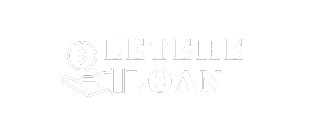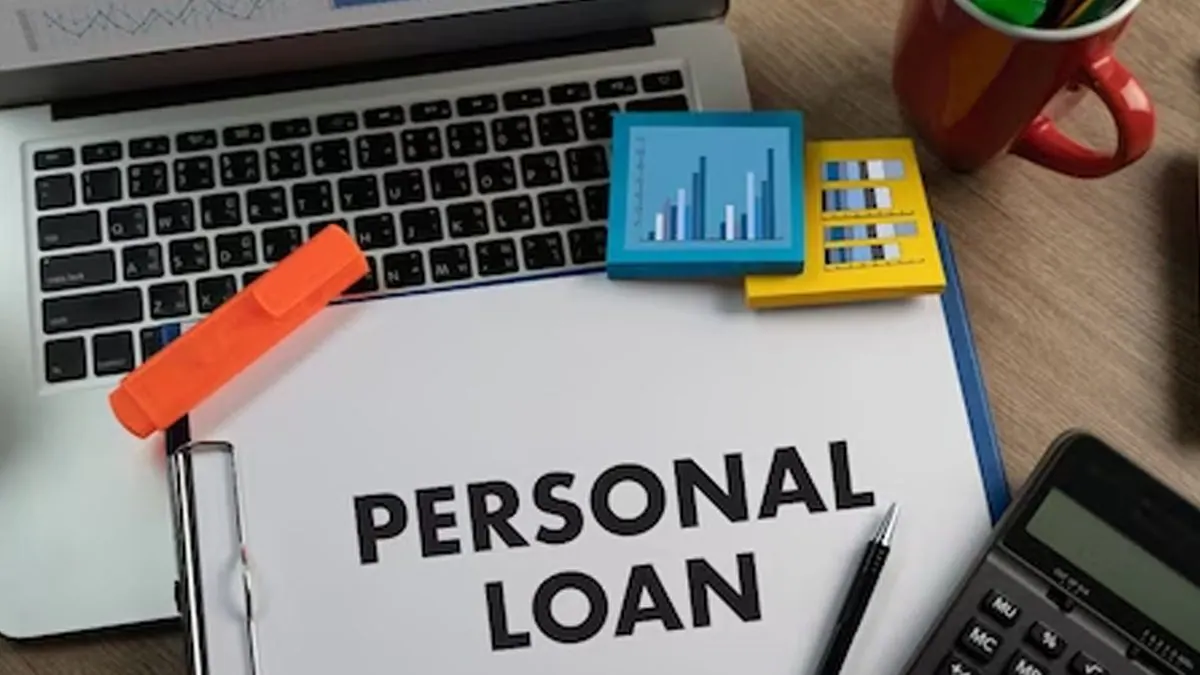Personal loans are a versatile financial tool that can help with a variety of needs—whether it’s consolidating debt, financing home improvements, or covering medical expenses. One of the first steps in applying for a personal loan is understanding personal loan eligibility. Knowing the factors that influence whether you qualify for a loan—and how lenders assess your eligibility—can help you navigate the application process with confidence and increase your chances of approval.
In this comprehensive guide, we’ll walk you through the key factors that impact personal loan eligibility. We’ll also cover common myths, provide answers to frequently asked questions, and offer tips to improve your chances of securing the best loan terms. By the end, you’ll be well-equipped to assess your eligibility and take the next steps in your borrowing journey.
Key Takeaways:
- Your credit score, income, and debt-to-income ratio are critical factors in determining your eligibility for a personal loan.
- Lenders also look at your employment status, credit history, and the loan amount you’re requesting.
- If you have less-than-perfect credit, consider applying for a smaller loan, using a co-signer, or opting for a secured loan to improve your chances of approval.
- Always compare different lenders and loan offers to find the best terms that suit your financial needs.
What is Personal Loan Eligibility?
Personal loan eligibility refers to the set of criteria that lenders use to determine whether or not you qualify for a personal loan. These criteria include various financial and personal factors such as your credit score, income, debt-to-income ratio, employment status, and more. Lenders use these criteria to assess your ability to repay the loan, and to mitigate the risk of lending to someone who may default on the loan.
Personal loan eligibility requirements can vary between lenders, but most financial institutions and online lenders look for similar factors when evaluating applications. Knowing these factors can help you better prepare before applying and increase your likelihood of approval.
How to get a personal loan?

In the era of digital banking, personal loans can be availed quickly. Some banks even offer pre-approved personal loans to customers instantly. On the other hand, some financial institutions can take up to 2-4 hours to process your personal loan, depending on the amount of money you need and other factors such as your creditworthiness.
Getting a personal loan is fairly easy provided you have your documents in order and have a good credit score. Many lenders offer you the facility to apply for a personal loan via the official app and through the bank’s website.
You can easily apply for a personal loan through digital platforms like Moneycontrol in a completely paperless process. The Moneycontrol app provides access to multiple personal loan offers from its lending partners. You can apply for the loans in a 100% paperless process. The interest rates for the loans start at as low as 12% per annum.
Key Factors Affecting Personal Loan Eligibility
The following are the key factors that determine whether you’ll qualify for a personal loan, and how favorable the terms will be:
Credit Score
Your credit score is one of the most important factors in determining your eligibility for a personal loan. A credit score is a numerical representation of your creditworthiness, based on your credit history. Lenders use your credit score to assess how likely you are to repay the loan. Higher credit scores typically lead to better loan terms, including lower interest rates.
- Excellent credit (750 and above): You’ll likely qualify for the best rates and loan amounts.
- Good credit (700-749): You’ll probably be approved with favorable terms.
- Fair credit (650-699): You may qualify for a loan, but the terms may not be as favorable.
- Poor credit (below 650): You may still be eligible, but you’ll likely face higher interest rates or may need a co-signer.
Tip: You can check your credit score for free from various credit reporting agencies or use online tools to monitor it before applying for a loan. If your score is lower than you’d like, consider improving it by paying off debt, making timely payments, or disputing inaccuracies.
Income
Lenders want to ensure you have a reliable source of income to cover your loan payments. The amount of income you earn directly influences the size of the loan you qualify for and your ability to repay it. When evaluating income, lenders typically look at your gross monthly income, which includes wages, salary, bonuses, and other sources of income like rental income or investments.
Lenders also take into account your job stability and length of employment, as a steady income and stable employment history are indicative of your ability to repay the loan.
Tip: Be prepared to provide proof of income when applying for a loan. This could include recent pay stubs, bank statements, or tax returns. Having verifiable proof of income helps demonstrate your ability to manage monthly payments.
Debt-to-Income (DTI) Ratio
Your debt-to-income ratio (DTI) is another crucial factor that lenders use to assess your financial health and personal loan eligibility. DTI compares your monthly debt payments to your gross monthly income. A lower DTI suggests you have more disposable income to cover new loan payments, which lowers the risk for the lender.
- Ideal DTI: Lenders typically prefer a DTI ratio of 36% or lower. A higher DTI may make it difficult to secure a loan or may result in higher interest rates.
Tip: To improve your DTI, focus on paying down existing debt, such as credit card balances or personal loans. The lower your DTI, the more favorably lenders will view your loan application.
Employment Status and History
Lenders also consider your employment status and work history when evaluating your loan application. A steady job, preferably with a long track record at the same employer, shows financial stability and a consistent income stream. Self-employed individuals or those with gaps in employment may face additional scrutiny, but can still qualify for personal loans by demonstrating stable income over time.
Lenders typically look for borrowers who have been employed in their current role for at least six months to a year.
Tip: If you’re self-employed, you may need to provide additional documentation, such as profit and loss statements or tax returns, to prove your income stability.
Loan Amount and Purpose
The amount of money you want to borrow and the purpose of the loan also influence your eligibility. If you’re applying for a large loan, you may need to demonstrate a higher level of income and financial stability. Lenders are more likely to approve smaller loan amounts with fewer requirements. Additionally, the purpose of the loan (such as debt consolidation, medical expenses, or home improvements) can affect the lender’s decision, as certain types of loans may be considered riskier than others.
Tip: Be clear about the purpose of your loan when applying, and be prepared to provide documentation if needed.
Credit History
In addition to your credit score, lenders will review your overall credit history, including any late payments, bankruptcies, defaults, or foreclosures. A clean credit history without any recent derogatory marks shows lenders that you are a responsible borrower.
If your credit history includes past mistakes, it may be more difficult to secure a personal loan, or you may be offered higher interest rates. In some cases, a co-signer with a better credit history may help you qualify for a loan.
Tip: If you have a less-than-perfect credit history, consider taking steps to improve your credit before applying, or apply with a co-signer.
Collateral (for Secured Loans)
While many personal loans are unsecured, some loans may require collateral. Secured loans use assets like your home, car, or savings account as collateral to back the loan. The collateral reduces the lender’s risk, as they can seize the asset if you fail to repay the loan.
If you’re applying for a secured loan, you’ll need to provide proof of ownership and the value of the collateral. These loans often come with lower interest rates than unsecured loans, but they come with the risk of losing your collateral if you default on the loan.
Tip: If you’re not comfortable using assets as collateral, consider applying for an unsecured loan instead.
Personal loan eligibility criteria

Here are the key eligibility considerations for both salaried and self-employed applicants:
Income and repayment capacity:
One of the first aspects lenders examine is the applicant’s income level. Lenders usually look for a steady income to gauge the applicant’s ability to handle monthly loan payments. For salaried applicants, a minimum income of Rs 15,000 to Rs 25,000 per month is often required and it may be higher for self-employed individuals.
Credit score:
The credit score is a crucial component of personal loan eligibility. Lenders generally look for a score of 700 or above. A credit score of 750 and above is considered ideal by majority of lenders.
Age requirements:
Age criteria differ for salaried and self-employed applicants. Salaried individuals are usually eligible between the ages of 18 and 60, while self-employed applicants in the age groups of 21 to 65 years can apply for personal loans.
Occupation and job stability:
Job stability is another important factor for salaried applicants, with most lenders looking for at least one year of stable employment and experience. For self-employed applicants, a minimum of three years in business.
Documents required
Identity proof: A PAN card or Aadhaar card is usually required to verify your identity.
Address proof: Documents like recent utility bills (electricity or water bill) or Aadhaar card can serve as proof of address.
Income proof: Salary slips or income tax returns (for self-employed individuals) help show your financial ability to repay the loan.
Bank statements: Many lenders also ask for your bank statemen from the past three to six months to assess your financial stability and spending habits.
How to improve personal loan eligibility
High credit score: A credit score of 700 or above and ideally above 750 makes you a more appealing candidate for lenders. You can improve your credit score by ensuring timely payment of credit card bills and loan EMIs.
Consider a co-applicant: Adding a co-applicant, such as spouse or parent, can improve eligibility if the lender allows joint applications. With a co-applicant, lenders take into account the combined credit scores and income levels.
Maintain steady employment: Job stability is crucial for lenders when assessing loan applications. Frequent job changes can signal instability, which may deter lenders from approving a loan. If you’re planning to apply for a loan, it’s beneficial to show a consistent work history.
Limit multiple loan applications: Each loan application triggers a hard inquiry on your credit report, which can lower your credit score temporarily. Applying to multiple lenders within a short period may make you appear credit-hungry, which can reduce approval chances.
Manage existing debt responsibly: Lenders look at your existing debt-to-income ratio when evaluating your ability to handle additional loans. Keeping your debt under control by making timely repayments and avoiding unnecessary borrowing can help present a healthier financial profile to potential lenders.
Credit Score and Credit History
Lenders consider your credit score and credit history when determining whether to offer you a personal loan. Your FICO credit score is a number from 300 to 850. The higher your credit score, the more likely you will be approved for a personal loan because you will be viewed as a lower-risk borrower.
Credit bureaus calculate credit scores using the information on your credit report. Your credit report includes information on your credit activity, such as how many credit accounts you have, your debt level, your credit mix, and your payment history. It also includes whether you have recently applied for new credit.
Understanding the factors impacting your personal loan eligibility

Posted on Monday, February 26th, 2024 | By IndusInd Bank
Personal loans are an easily accessible form of credit in India, offering individuals the flexibility to address various financial needs without pledging collateral. Securing a personal loan can often be the gateway to fulfilling aspirations, whether it’s renovating your home, funding education, or dealing with unexpected expenses. However, the path to loan approval isn’t always straightforward. For many of you, navigating the process to determine your personal loan eligibility can be daunting.
That’s why we’ve compiled this guide to shed light on the key factors defining personal loan interest rate and your eligibility for it.
Demystifying Personal Loan Eligibility: 5 Things That Matters
Your Creditworthiness
Your credit score tells the lenders about your creditworthiness. It is not just a number but a reflection of your financial reliability. Lenders use this score to assess the risk of lending to you. For instance, a high credit score, typically above 750, indicates responsible financial management and increases your chances of loan approval. Conversely, a low credit score may raise red flags for lenders, making it harder to secure a personal loan or leading to less favourable terms.
Regularly monitoring the credit score and taking steps to improve it, such as paying loan EMIs and credit card bills on time, can significantly enhance your personal loan eligibility.
Your Financial Stability
The next important thing that lenders consider when evaluating your eligibility for a personal loan is your monthly income. It represents your ability to repay the loan amount and any associated interest within the stipulated time frame.
Lenders typically prefer borrowers with a regular and sufficient income stream, as it reduces the risk of default. Besides this, your income determines the maximum loan amount you can qualify for and influences the personal loan rate of interest offered by lenders.
Your Professional Profile
Your work experience also holds significant weight in determining your eligibility for the loan. Lenders view a consistent employment history as a positive indicator of repayment capacity. A longer tenure in your current job or profession demonstrates commitment and reliability, making you a lower-risk borrower in their eyes.
Additionally, individuals with a consistent work history are more likely to have a steady income, which further strengthens their loan application. While frequent job changes or gaps in employment may raise concerns for lenders, highlighting your professional stability and career progression can bolster your personal loan eligibility.
Your Age
Your age plays a crucial role in shaping your loan eligibility. While younger applicants may have the advantage of potential future earnings and longer loan tenures, older borrowers often possess a more established financial track record and may have accumulated assets. Lenders consider your age to assess your financial situation and hence, the ability to repay the loan within the specified timeframe. The minimum age requirement for applying for a loan online is 21 years with IndusInd Bank and requires applicants to show their income proof. On the other hand, older applicants may need to reassure lenders of their post-retirement income sources.
Your Current Financial Liabilities
Your existing financial commitments, such as outstanding loans, credit card debts, and other liabilities, play a crucial role in determining your personal loan rate of interest. Lenders evaluate your current debt obligations to assess your debt-to-income ratio – a measure of your ability to manage additional debt. A high debt-to-income ratio indicates that a significant portion of your income is already allocated towards debt repayment, raising concerns about your ability to afford additional loan payments.
Here’s how a personal loan in India works
- Application: The first step is to apply, either online or by visiting the branch of a lender
- Documentation: Once you apply for the personal loan, the next step is to complete a KYC process by submitting the necessary documents. This includes uploading your proof of identity, address proof, income proof (pay slips or bank records), and a PAN card. The actual documents required may vary based on the lender’s policies.
- Approval: Once you submit the necessary documents, the lender assesses your application. If you meet their personal loan eligibility criteria, your personal loan would be approved.
- Disbursement: Upon approval, you will receive a transfer of the loan amount into your bank account. Some lenders complete the process almost instantly. The amount could be credited into your account within 24 hours.
- Repayment: The repayment is made using Equated Monthly Instalments (EMIs) over a pre-determined tenure.
Also Read : The Best Personal Loans: A Comprehensive Guide To Choosing The Right One
Conclusion
Understanding personal loan eligibility is crucial before applying for a loan. By knowing what lenders are looking for, you can better assess your own qualifications and improve your chances of approval. Factors such as your credit score, income, debt-to-income ratio, and employment status all play a significant role in determining your eligibility for a personal loan.
If you don’t meet all the criteria, there are steps you can take to improve your eligibility, such as paying down debt, improving your credit score, or applying with a co-signer. Remember to compare loan offers from different lenders to find the best terms, and ensure that you understand the loan’s interest rates, fees, and repayment schedule.
FAQs
What is the minimum credit score required to get a personal loan?
The minimum credit score required varies by lender, but most traditional lenders require a score of at least 600-650 for unsecured loans. Some online lenders may approve loans for individuals with lower credit scores, but they typically charge higher interest rates.
Can I get a personal loan if I have bad credit?
Yes, it is possible to get a personal loan with bad credit, though the interest rates will likely be higher. Consider using a co-signer or applying for a secured loan if you have poor credit.
How do I know if I’m eligible for a personal loan?
To determine your eligibility, review your credit score, income, debt-to-income ratio, and employment status. Many lenders also offer pre-qualification tools online, which allow you to check your eligibility without affecting your credit score.
How can I improve my chances of getting approved for a personal loan?
You can improve your chances by ensuring you have a strong credit score, low debt-to-income ratio, steady income, and a stable employment history. Also, consider applying for a smaller loan amount to increase your chances of approval.
What if I don’t meet all the eligibility criteria?
If you don’t meet all the criteria, you may still be able to qualify by providing additional documentation or applying with a co-signer. Some lenders may also offer loans to individuals with less-than-perfect credit, but with higher interest rates.
Can a personal loan be used for any purpose?
Yes, personal loans can typically be used for a wide range of purposes, including debt consolidation, medical expenses, home improvements, and more. However, be sure to check with the lender to see if there are any restrictions on loan usage.
How long does it take to get approved for a personal loan?
The approval process can take anywhere from a few minutes to several days, depending on the lender and the complexity of your application. Online lenders tend to offer faster approval times compared to traditional banks.





